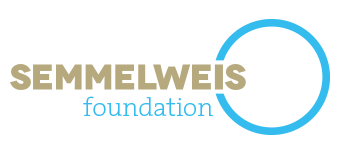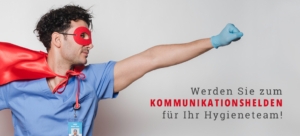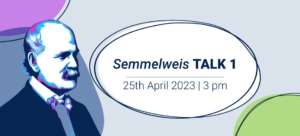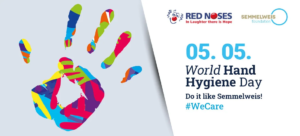
Mit dem Laden des Videos akzeptieren Sie die Datenschutzerklärung von YouTube.
Mehr erfahren
Thank you for joining our fourth Semmelweis Talk!
This time we are happy to welcome Andreas Voss, Professor and Chair of the department of clinical microbiology and infection control at the University Medical Center in Groningen, Emese Szilagyi, medical director at Péterfy Hospital in Budapest, and last but not least Jakub Kozák, CEO and co-founder of Datlowe.
The main focus of the talk will be on how much the pandemic has affected MDROs and infection control. We will also get an insight into the exciting practical experience of infection prevention control and learn about an AI-based solution for the automation of surveilling healthcare-associated infections.
You can’t imagine the connection yet? Then have a quick look at our fourth Semmelweis Talk!
Our special guests for the 4th Semmelweis Talk:
- Andreas Voss “The Influence of COVID-19 on MDRO’s & Infection Control”
- Emese Szilagyi “IPC learnings from the field”
- Jakub Kozák “HAIDI –AI-based solution for the automation of surveillance of healthcare-associated infections“
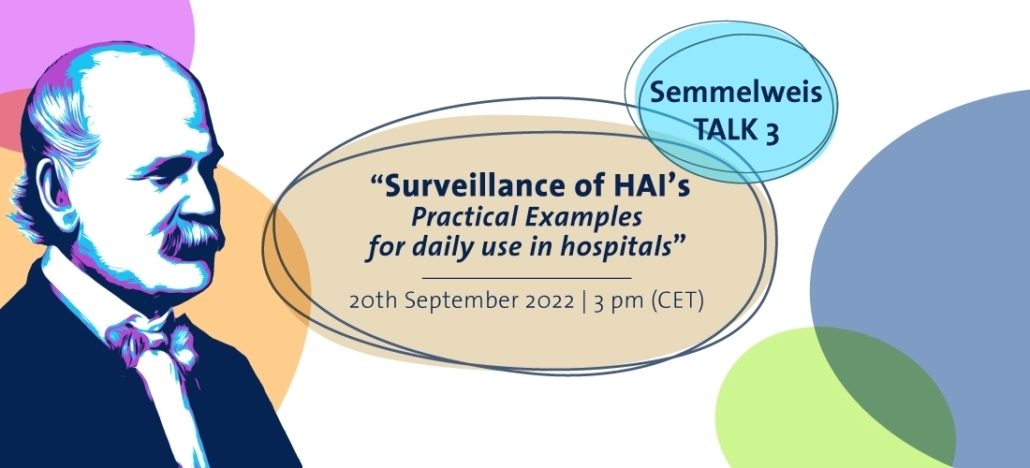
Join our third Semmelweis Talk!
Whether it is through direct physical contact with healthcare workers or through contaminated surfaces in the environment of the hospital: The transmission of pathogens is complex and therefore has to be monitored to prevent further infections. “Healthcare-associated infections are known to increase the length of hospital stays, health care costs, and mortality. Each year the top 5 healthcare-associated infections result in about $9.8 billion costs, with surgical site infections leading the pack,” the WHO warns. But what can we do about it and why is it so important to monitor infections in the hospital environment?
We are very proud to welcome Mrs. Petra Gastmeier, Medical Director, Institute of Hygiene and Environmental Medicine at Charité (Berlin), and Mrs. Biljana Carevic, Hospital Epidemiologist at the Department of Hospital Epidemiology at the University Clinical Center of Serbia to our third Semmelweis Talk this year to discuss experiences they made with healthcare-associated infections and how they used them to control further infections, giving us practical examples.
Prof. Dr. med. Petra Gastmeier “Miss Kiss”, Medical Director, Institute of Hygiene and Environmental Medicine at Charité (Berlin)
The Specialist in hygiene and environmental medicine has won the Award for Hospital Hygiene and Infection Prevention from the Robert Koch Foundation, Berlin for her fight against nosocomial infections. Furthermore, she invented the German national Nosocomial Infections Surveillance System (KISS) which includes several modules such as NEO-KISS for premature babies, OP-KISS for surgical wards, or the MRSA-KISS. In hygienist circles, the 58-year-old is therefore also known as “Miss Kiss”. Gastmeier was also able to use KISS to create extensive databases that enable scientific analyses of the epidemiology and pathogenesis of nosocomial infections and make the influence of patient- and hospital-related factors measurable.
Biljana Carevic, Hospital Epidemiologist at the Department of Hospital Epidemiology at the University Clinical Center of Serbia
Biljana Carevic has long-standing experience in scientific research on infection control and prevention. Her curriculum vitae shows positions as a member of the Executive Board of the European Study Group of Antibiotic Policies (ESGAP) of the European Society of Clinical Microbiology and Infection Diseases (ESCMID), and the Board of Trustees of the International Federation of Infection Control representing European countries. She also worked as an Infection Prevention Control Consultant for several hospitals in Serbia, as well as for the Ministry of Health in Montenegro. Currently, she continues her work as President of the Serbian Association of Prevention Infection Control (SAPIC). Since 2019 she also serves as a Member of the Editorial Board of the Journal of Microbiology and Infectious Diseases and has been elected to the Executive Board of the European Committee of Infection Control (EUCIC) of the ESCMID.
Dr. Seven Aghdassi, Specialist in hygiene and environmental medicine, Charité (Berlin)
Dr. Seven Aghdassi works as an infection control physician at Charité university hospital Berlin. He specializes in implementing infection control interventions and training in different fields of medicine. Furthermore, he coordinates surgical site infection surveillance within the German Nosocomial Surveillance System (KISS). Alongside other colleagues of the German national reference center for surveillance of nosocomial infections, he supported the WHO in developing the Infection Prevention and Control Assessment Framework at the facility level (IPCAF). The tool was disseminated by means of a survey among hospitals in Austria and Germany that participated in the KISS network in 2018. The survey revealed that the implementation of IPC key aspects was generally at a high level in Austria. However, potentials for improvement were demonstrated, most prominently with regard to staffing, IPC education and training, effective implementation of multimodal strategies, and involvement of professional groups. Dr. Aghdassi will summarize and discuss the key findings of the survey pertaining to the participating Austrian hospitals.
Haven’t registered yet? Fill in your contact information and you’ll get free access to the third Semmelweis Talk.
Key data:
- September 20
- 3 p.m. (CET)
- for free
Presentations:
Petra Gastmeier
Biljana Carevic
Seven Aghdassi
Videorecording:

Mit dem Laden des Videos akzeptieren Sie die Datenschutzerklärung von YouTube.
Mehr erfahren
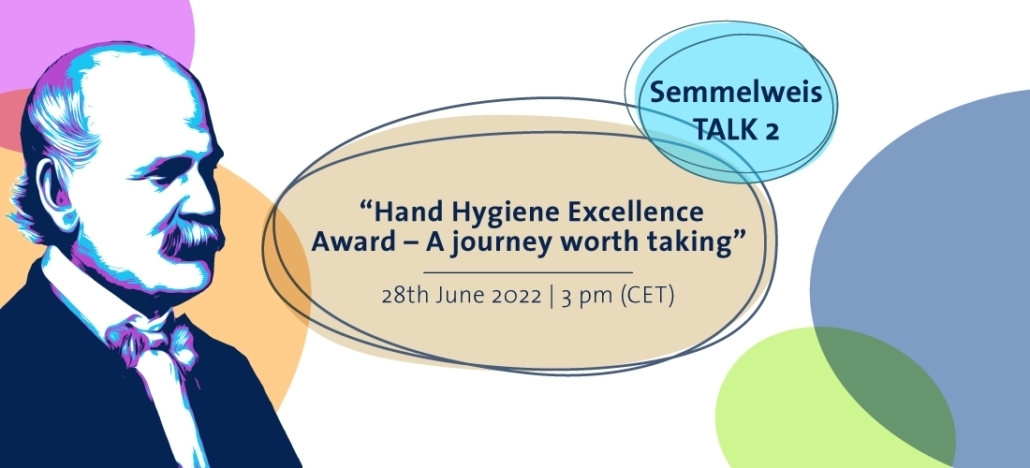
Join our second Semmelweis Talk!
After the very successful start of our new event series, we are proud to announce the second Semmelweis Talk for you to register.
This time both winners of the Hand Hygiene Excellence Award (HHEA) 2021 will join our 2nd Talk.
Elke Schindler, Medical Director of Hospital Villach Austria and Martina Močenić, Hospital Pula Croatia will share their experience in submitting for the award. From their concept of hygiene to what made them decide to participate.
The talk will feature practical user examples, and professional know-how from Elke Schindler, Martina Močenić and also Thomas-Jörg Hennig ( B.Braun) , who is the auditor of the award and gives us an insight into the application process.
Make sure, that you are registered for the second Talk
You have missed the first Semmelweis Talk? Click here to watch it
Key data:
- June 28
- 3 p.m. (CET)
- for free
Presentations:
Videorecording:

Mit dem Laden des Videos akzeptieren Sie die Datenschutzerklärung von YouTube.
Mehr erfahren
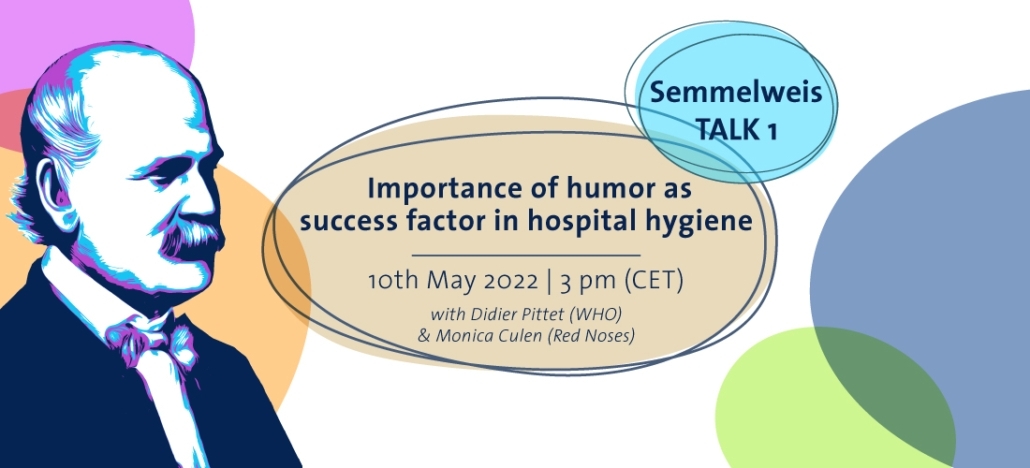
Thank you for joining!
Without question, times are tough since Covid-19 and now also a war has broken out in Europe. For sure, there is really not so much we can laugh about right now.
But after all, the pandemic has shown the world how important hand hygiene really is and that it is of enormous importance, especially in healthcare facilities.
So why not put a positive spin on it and give it something that we can relate to in a positive way? Like we can laugh about it? Learning is much easier being in a positive mood – Don’t you agree?
In the first Semmelweis Talk, Prof. Didier Pittet (WHO) and Monica Culen, founder of Red Noses, showed which positive effects humor can have on teaching a professional hygiene routine that nobody will ever forget.
Key data
– May 10
– 3 p.m. (CET)
– for free
Presentations:
Videorecording:

Mit dem Laden des Videos akzeptieren Sie die Datenschutzerklärung von YouTube.
Mehr erfahren
